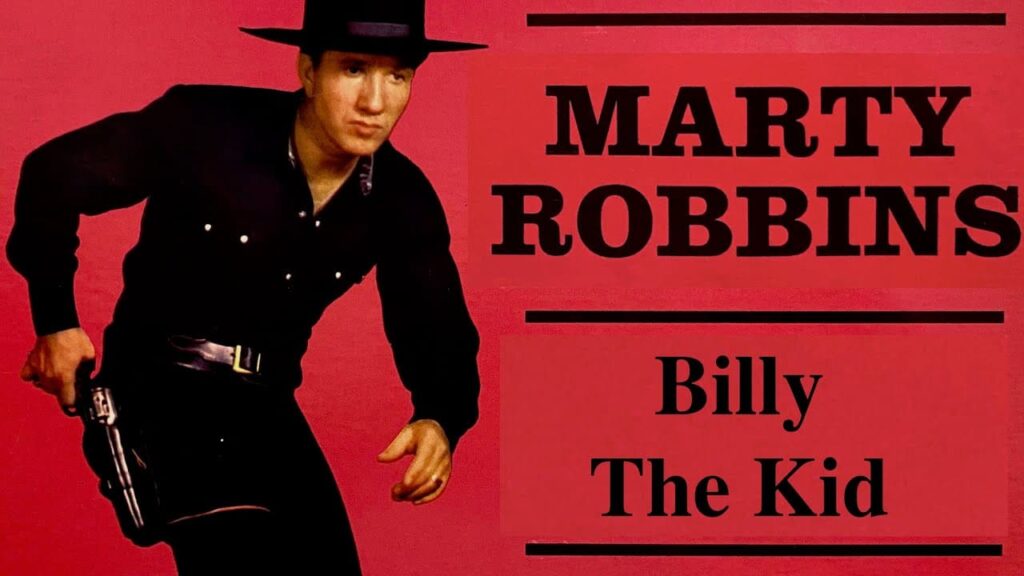
The ballad of a young man caught between legend and history, a tale of fleeting notoriety and an inevitable, lonely end.
For those of us who grew up with the storytelling power of country and western music, there’s a feeling that comes with hearing the opening notes of certain songs, a stirring of memories and a palpable sense of nostalgia. It’s the sound of a time when a song could transport you to a dusty, sun-scorched landscape, a world of gun smoke, horses, and men living by a code all their own. No one captured that world quite like Marty Robbins, and perhaps no song epitomizes it as completely as his classic, “Billy the Kid.”
This track wasn’t a pop chart sensation in its own right, but its legacy is far greater than any single. The song is a standout piece from Marty Robbins‘ fifth studio album, the monumental Gunfighter Ballads and Trail Songs, which was released in September 1959. While the album itself soared to a respectable number six on the U.S. pop albums chart and was eventually certified platinum, it was the enduring power of its storytelling that made it a cornerstone of American music. “Billy the Kid” is one of three traditional songs on the album, lending a sense of historical authenticity and timelessness to the collection.
The story behind this song is a masterclass in how a simple ballad can turn a historical figure into a folk hero. While the lyrics present a straightforward, linear narrative of the famous outlaw’s life and death, the genius of Robbins‘ rendition lies in its tone. It’s not a celebration of violence, but rather a somber, almost melancholic recounting of a young life tragically cut short. The song traces Billy’s journey from his youth, highlighting his violent reputation (“had a notch on his pistol for twenty-one men”), and culminates in his final, fateful encounter with his former friend, Sheriff Pat Garrett. It’s a somber tale of betrayal and the swift, brutal justice of the Old West, where even the most notorious figure could meet their end quietly in the dark.
For those of us who remember a time before the world moved so fast, this song is a portal back to a more reflective era. It evokes the feeling of a late night, a single light burning in the corner of a room, and a voice on the radio weaving a tale of distant times and forgotten heroes. The song’s simple, unhurried melody, carried by Marty Robbins‘ smooth, confident baritone, allows the listener to fully immerse themselves in the narrative. There are no flashy choruses or complex arrangements; the focus is entirely on the words, which paint a vivid picture of a young man who was both a bandit and, to many, a tragic figure. It speaks to a certain kind of fatalism, the notion that some lives are simply destined to end in sorrow, no matter how much they burn with a restless fire. It’s a testament to the power of a well-told story and a reminder that, in the end, even legends are just men.